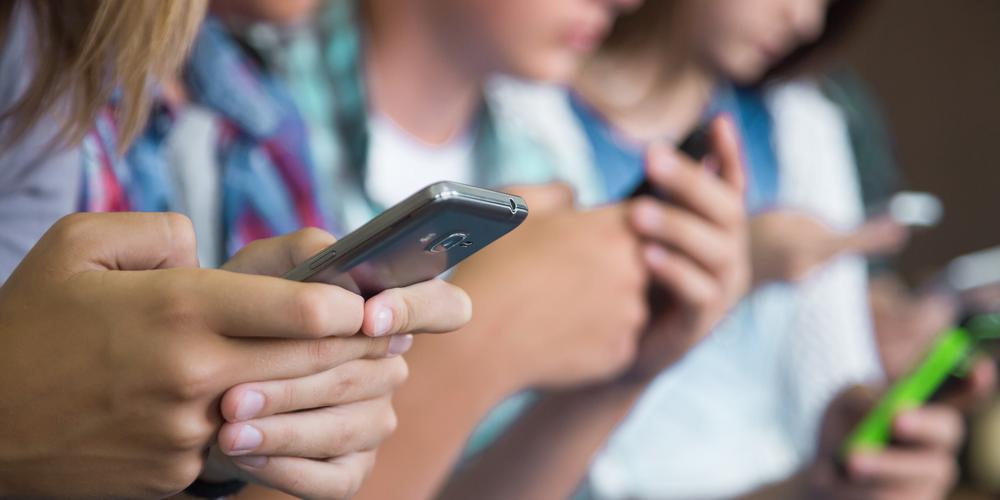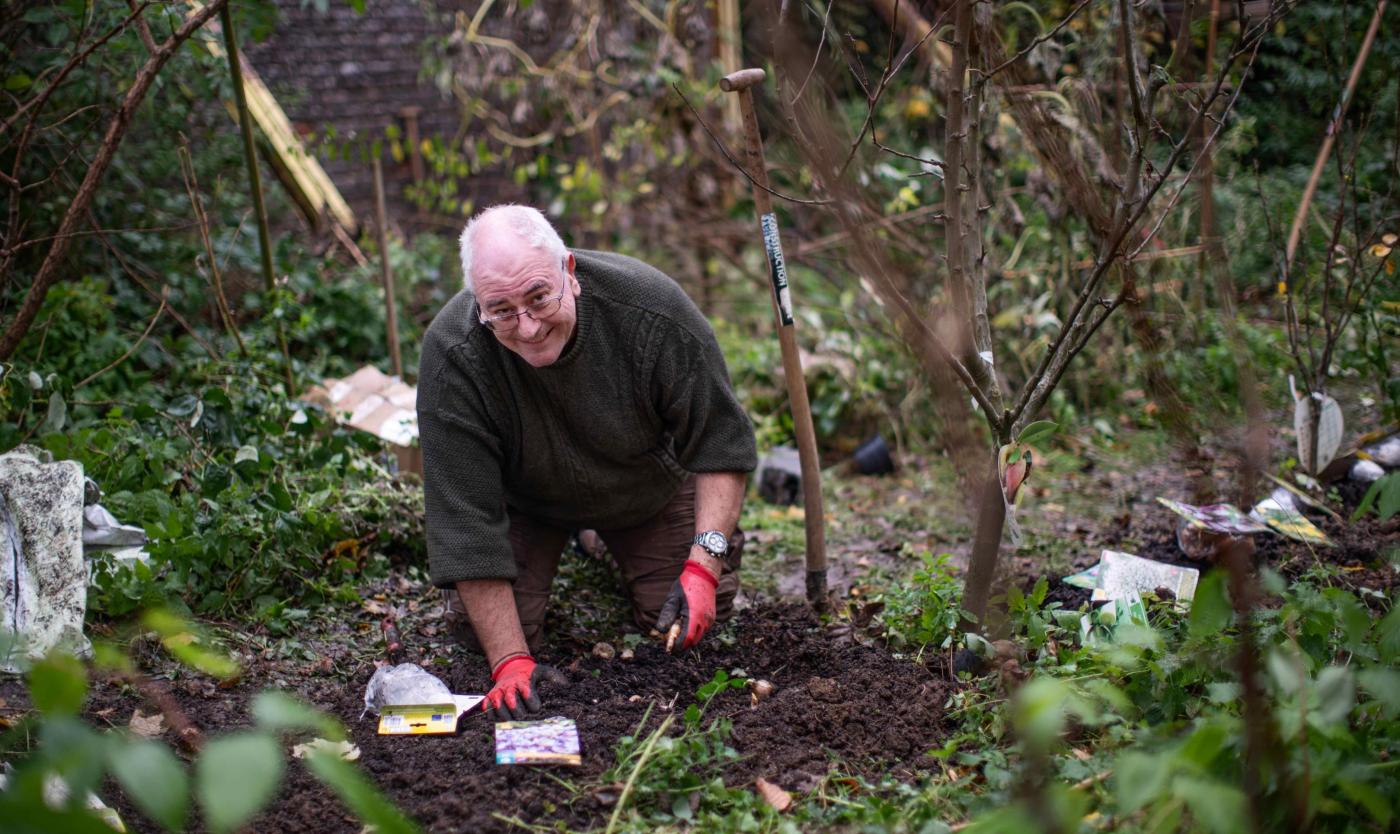
From September, a smartphone ban will be enforced in all Flemish schools. Only sixth-form students will still be allowed to use their devices during breaks. Paternalistic or absolutely necessary? We asked VUB experts Geert Vandermeersche from the BILD research group and Jo Tondeur from the MILO teacher training programme for their views.
How do you see the smartphone ban?
Geert Vandermeersche: “From my expertise in youth culture, I have to ask: where is the voice of young people? The Student Council expressed surprise at this decision, which shows they were not consulted. The lack of youth input is a huge omission. Schools are miniature societies where young people learn what it means to be citizens—making democratic decisions together and forming opinions about how the world should be. What role do policymakers assign to young people in shaping their own learning environment? This ban seems to go against the very idea of fostering citizenship.
I struggle with the argument that this decision is based on ‘common sense.’ As academics, we value weighing up pros and cons based on research. The ‘common sense’ argument is often a conversation stopper—it shuts the door on open debate.”
"The lack of youth input is a huge omission. Schools are miniature societies where young people learn what it means to be citizens"
Jo Tondeur: “Research shows that involving schools, teachers, and pupils in policymaking leads to greater impact. In schools where pupils had a say in the smartphone policy, there is more support for the rules. Yet many schools still lacked a clear policy on smartphone use. The government could have encouraged them to develop one—just as schools were once urged to establish an ICT policy. In Flanders, where schools enjoy significant autonomy, it feels odd that this decision has been imposed from above. What will come next? This sets a dangerous precedent.”

Geert Vandermeersche (photo: Bram Van Landschoot)
Was this ban necessary?
Jo Tondeur: “Smartphones entered schools through the ‘bring your own device’ movement, aimed at ensuring everyone had access to technology. Now that schools have sufficient digital tools, a smartphone is no longer strictly necessary for learning.
The ban in the playground is a different debate. In schools where phones were already banned, some pupils feel relieved—there’s more sport and conversation. Others feel as though a part of their identity has been taken away. I agree that smartphones don’t belong in primary school. They reinforce inequality—not every child owns a phone—and they harm young brains, which are more sensitive to the constant stimulation of addictive apps. In secondary school, however, I see room for nuance. I support a gradual approach. Giving older pupils more freedom is a positive step.”
Geert Vandermeersche: “IMEC’s annual Digimeter survey shows that many young people feel bad about the time they spend online. Many try to address this by setting time limits, but that often isn’t enough. And that makes sense—apps are designed to keep our attention. But instead of controlling young people, we should support them. Media theorist Henry Jenkins put it well: ‘We shouldn't look over young people's shoulders, we should have their back.’ Jo is right that learning is more effective with a laptop than with a smartphone. But perhaps our role is to think about how smartphones could actually improve learning? Take a museum visit, where pupils complete extra tasks via an app. We should encourage that kind of teacher creativity, not block it.”
Will the ban improve well-being and bring other benefits?
Geert Vandermeersche: “Blaming technology as the culprit is an oversimplification. Well-being is influenced by many factors. The idea that a smartphone ban at school will solve all problems is an illusion. Issues like cyberbullying and the impact of body culture on TikTok and Instagram will simply shift to outside school hours. The problem extends far beyond schools. We also need to be willing to question popular culture and advertising.”
"The idea that a smartphone ban at school will solve all problems is an illusion"
Jo Tondeur: “Studies highlight both pros and cons of a smartphone ban. One key benefit is that it encourages physical activity. That’s interesting, though I hear from educators that sport and play aren’t always actively promoted during break times.
A second advantage is that boredom can foster creativity. It also encourages pupils to engage in conversation away from their screens and reduces distractions. Research suggests that smartphones in schools negatively impact academic performance, though I have methodological concerns about that. So many variables are at play that measuring this effect accurately is difficult. The expected improvement in academic performance is not particularly significant.
The downsides of a smartphone ban are just as thought-provoking. Young people need to learn how to manage distractions. If they don’t learn this at school, where will they? The digital world is part of their identity. Doesn’t a smartphone ban go against the vision of a free society?
The argument that children can’t reach their parents during school hours seems less critical to me. But there are also practical concerns. How will smartphones be stored? What costs will this bring? What sanctions will be applied? These are all arguments worth considering.”

Jo Tondeur (photo: Greetje Van Buggenhout)
Are we worrying too much about young people?
Geert Vandermeersche: “Young people are growing up in a post-digital era, where the digital and physical worlds are intertwined. Older generations still see online and offline as two separate realities, and that shapes how we view young people.
There’s often a belief that teenagers ‘spend all their time staring at screens,’ while we were supposedly ‘so much more social’ as kids. But this is a story we construct based on our own experiences and well-intentioned concern—one that isn’t entirely accurate. Media have always influenced young people. Decades ago, television, music, and magazines played a huge role; today, it’s online media. Every generation worries about how young people spend their time.
Should we ignore these concerns? No. But let’s make sure we keep the conversation going.”
Jo Tondeur: “We need to be careful not to demonise technology. New innovations are often pushed away at first—just like we see now with AI. Only when people become more familiar with them do they start recognising their value.
When we talk about technology, we need to be specific. Cyberbullying and body image issues among girls are legitimate concerns. But in outdoor learning, for example, smartphones can be incredibly useful. One of my PhD students is researching how young people use their phones. They create websites for their sports clubs, learn new languages, and produce content…”
"We need to be careful not to demonise technology. New innovations are often pushed away at first—just like we see now with AI"
What advice do you have for teachers?
Geert Vandermeersche: “I believe many teachers will continue focusing on media literacy. But I worry this ban could give the impression that schools no longer need to take responsibility for it. That would be a mistake. Make sure media literacy lessons remain a space where smartphones are used functionally. Start from young people’s reality. If you’re discussing privacy settings, for instance, have pupils apply them to their own apps straight away.”
Jo Tondeur: “It’s just as important to reflect on digital habits across other lessons. I hope teachers stay engaged with young people’s digital world—and are willing to question their own approach too. A smartphone ban might help focus attention in class, but ultimately, lesson quality is what really matters. How can you spark your pupils’ interest? I hope this ban isn’t just about restrictions but also stimulates debate and encourages schools to promote meaningful ‘break time’ activities—such as sports—so that it leads to something positive.”*
*This is a machine translation. We apologise for any inaccuracies.

